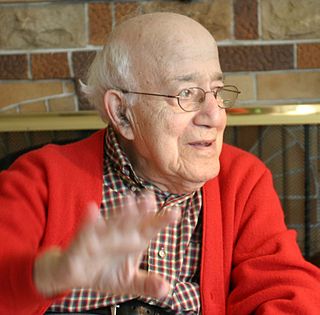A Quote by Edward Bulwer-Lytton, 1st Baron Lytton
Could we know by what strange circumstances a man's genius became prepared for practical success, we should discover that the most serviceable items in his education were never entered in the bills which his father paid for.
Related Quotes
The question that faces every man born into this world is not what should be his purpose, which he should set about to achieve, but just what to do with life? The answer, that he should order his life so that he can find the greatest happiness in it, is more a practical question, similar to that of how a man should spend his weekend, then a metaphysical proposition as to what is the mystic purpose of his life in the scheme of the universe.
What is it to be a gentleman? Is it to be honest, to be gentle, to be generous, to be brave, to be wise, and, possessing all these qualities, to exercise them in the most graceful outward manner? Ought a gentleman to be a loyal son, a true husband, an honest father? Ought his life to be decent, his bills to be paid, his taste to be high and elegant, his aims in life lofty and noble?
Behind the newspaper Julian was withdrawing into the inner compartment of his mind where he spent most of his time. This was a kind of mental bubble in which he established himself when he could not bear to be a part of what was going on around him. From it he could see out and judge but in it he was safe from any kind of penetration from without. It was the only place where he felt free of the general idiocy of his fellows. His mother had never entered it but from it he could see her with absolute clarity.
Success is in the student, not in the university; greatness is in the individual, not in the library; power is in the man, not in his crutches. A great man will make opportunities, even out of the commonest and meanest situations. If a man is not superior to his education, is not larger than his crutches or his helps, if he is not greater than the means of his culture, which are but the sign-boards pointing the way to success, he will never reach greatness. Not learning, not culture alone, not helps and opportunities, but personal power and sterling integrity, make a man great.
Here's a strange fact: murder a man, and you feel responsible for his life - ''possessive'', even. You know more about him than his father and mother; they knew his fetus, but you know his corpse. Only you can complete the story of his life, only you know why his body has to be pushed into the fire before its time, and why his toes curl up and fight for another hour on earth.
The whole gospel of Karl Marx can be summed up in a single sentence: Hate the man who is better off than you are. Never under any circumstances admit that his success may be due to his own efforts, to the productive contribution he has made to the whole community. Always attribute his success to the exploitation, the cheating, the more or less open robbery of others. Never under any circumstances admit that your own failure may be owing to your own weakness, or that the failure of anyone else may be due to his own defects - his laziness, incompetence, improvidence, or stupidity.
A genius is the man in whom you are least likely to find the power of attending to anything insipid or distasteful in itself. He breaks his engagements, leaves his letters unanswered, neglects his family duties incorrigibly, because he is powerless to turn his attention down and back from those more interesting trains of imagery with which his genius constantly occupies his mind.
I don't think I've seen that sort of character in a long time in this genre because again, there was a time when you could have quirky, strange characters that you grew to love, you didn't quite understand, you know, and then all of a sudden they became almost cardboard cutouts for awhile. You kind of know the guy, what his deal is - this guy's hard to figure out. He has some strange habits, but, you learn to love him and you discover more about him, where it comes from.
Christ is already in that place of peace, which is all in all. He is on the right hand of God. He is hidden in the brightness of the radiance which issues from the everlasting throne. He is in the very abyss of peace, where there is no voice of tumult or distress, but a deep stillness--stillness, that greatest and most awful of all goods which we can fancy; that most perfect of joys, the utter profound, ineffable tranquillity of the Divine Essence. He has entered into His rest. That is our home; here we are on a pilgrimage, and Christ calls us to His many mansions which He has prepared.





































